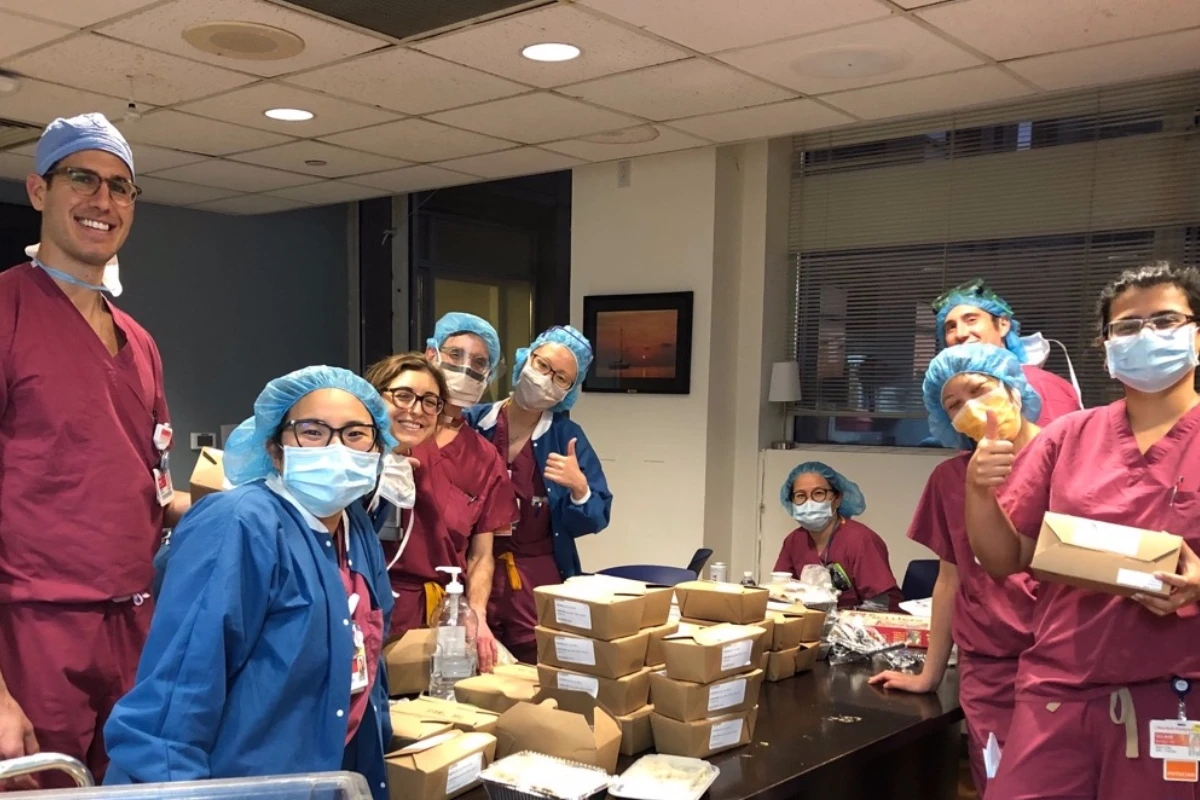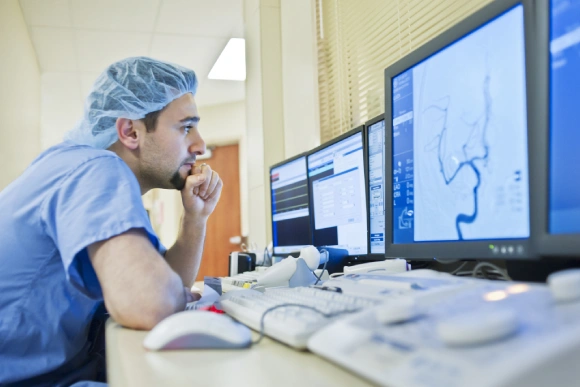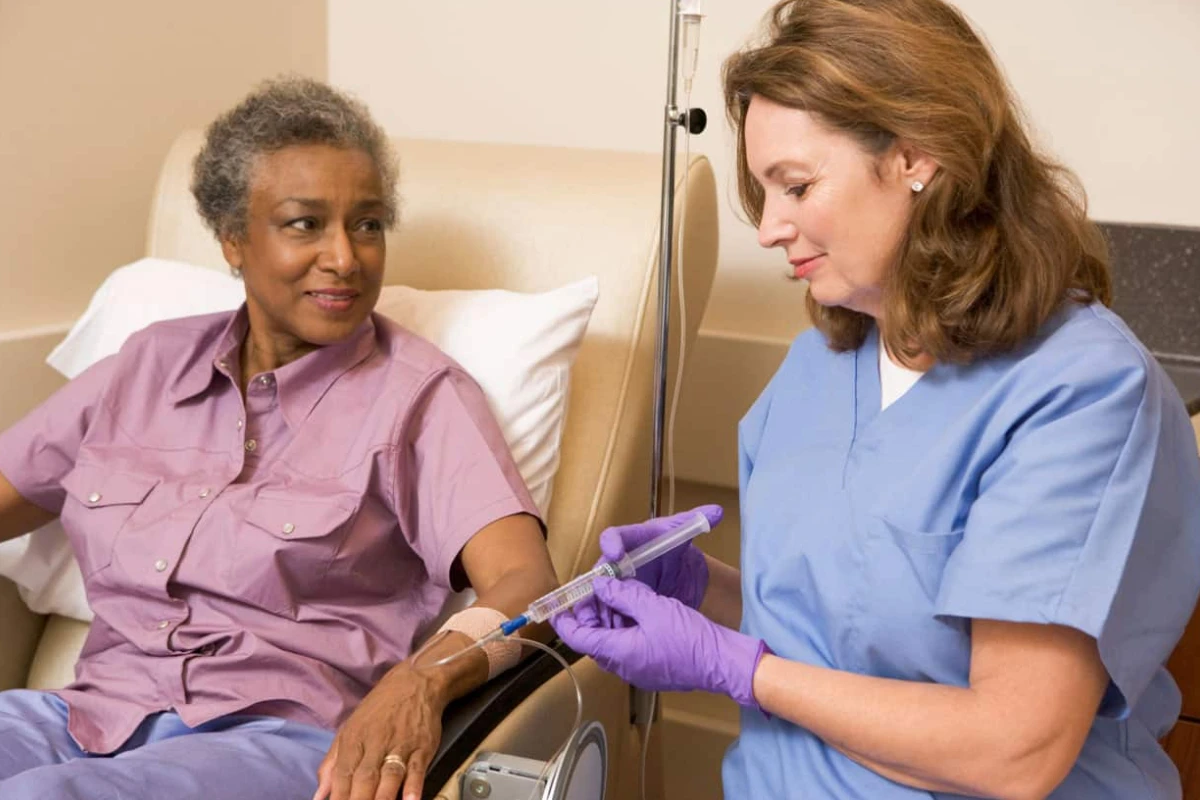
Individual patient healthcare requires a network
It takes committed, professional and highly-skilled people, in a wide variety of positions, to accomplish the goal of providing quality patient care. Consider how many members of a hospital’s staff a patient may interact with during one hospital stay.
For example, upon arrival, a patient entering a hospital for a day surgery will probably begin with the assistance of the admissions administrator, who will process paperwork and give the patient instructions as to where to go next. The patient may then meet a patient coordinator at the day surgery department, who will escort them to a changing/waiting area, where a nurse will help them prepare for surgery. A blood test may be required at this time so a lab technician will be introduced to draw blood.
The patient will then meet an anesthesiologist who will review the anesthesia process, so the patient will know what to expect. When ready, an orderly will take the patient to the operating room, where more nurses, as well as the surgeon, will be. When surgery is over, the patient will be brought to the recovery room, where still another nurse will monitor the patient’s recovery until they are ready to be discharged.
At discharge, the patient will meet yet another person who will accompany him/her out of the hospital. Each of the medical staff the patient comes into contact with is committed to providing the best possible care to the patient at every interaction, and all of these interactions contribute to patient experience.
There are also those healthcare workers that contribute to patient experience that a patient will not interact with. Staff that keep operating rooms and equipment sterile and safe, those that prepare food around the clock to feed patients, administrators that update patient records and keep those records secure, information technology staff that keep computer networks online and provide instant tracking of patients and information—the list goes on and on.
Healthcare workers have the right stuff
What makes an effective healthcare worker? Suffice to say, dedicated healthcare professionals possess special attributes and characteristics that drive them to a career in the healthcare industry. Some of these attributes include:
Love of People: Healthcare is all about people, people in need of health services of one kind or another. Depending on your healthcare expertise, your interactions may be with a wide variety of people. Whether you are an emergency nurse or a healthcare billing specialist, you will interact with people who need your help on a daily basis. Your genuine desire to improve the quality of life for your patients is an essential element to a fulfilling healthcare career.
Caring/Empathetic: You have a caring nature. Even as a child, you may have been the first to run for Band-Aids and an ice pack to provide relief for a friend with a boo-boo. You will interact with people that may be nervous, frightened, or even angry and your caring spirit will make them more at ease and potentially aid in their recovery.
Patience: Patience is not only a virtue but an absolute necessity in healthcare. Even though you are working in a fast-paced industry with deadlines to meet, you will work with patients who may not move as fast as you’d like or speak as clearly; this is where your patience is essential. Quality patient care should be your top priority
Trustworthiness: As a healthcare provider, you may be privy to patient medical records or billing information. Patients need to trust that their information will remain confidential. There are federal privacy laws that protect patients that must be adhered to, but beside that, you understand that keeping patient confidentiality is the simply the right thing to do.
Communication Skills: In providing quality healthcare, communications skills are critical. You need to not just hear a patient, but you must listen to a patient. You know that sometimes what a person doesn’t say may be as important as what they do say. A person’s body language is telling as well. It is extremely important to fully understand what a patient is trying to relay and refined communication skills are key to that understanding.
Skilled: Effective healthcare workers need to be highly skilled. Whether you are a doctor, nurse, physical therapist, x-ray technician, billing clerk, environmental services maintenance or other worker associated with healthcare, the need for specialized education and training is absolute; there is little to no room for error in healthcare. Additionally, with constant advancements in medical technology, supplementary education and training will surely be essential throughout one’s career. Additionally, as part of a larger healthcare network, you will need training in overall common industry practices such as patient experience, infection prevention, personal protective equipment and safety and security procedures.
Recommended for you
-
Medical Assistant Program
Take our accelerated Medical Assistant with Clinical Labs program at our Arlington campus and start a new career in as little as 8 months!
Radiology Technician Training
Take our accelerated Radiology Technician Training program at our Arlington campus and start a new career in as little as 8 months!
Medical Billing And Coding Specialist Program
Our 100% online accelerated Medical Billing and Coding Specialist Program makes it possible for you to train for a new career in as little as 25 weeks!
Pharmacy Technician Training Program
Our 100% online accelerated Pharmacy Technician Training program makes it possible for you to train for a new career in as little as 25 weeks!
Medical Assistant Program
Our 100% online fast track Medical Assistant program makes it possible for you to train for a new career in as little as 6 months!
Responsibility: Dropping the ball is not an option; people’s lives may depend on it. You do what is necessary and beyond.
Dedication: It takes a dedicated person work in a profession where one will sometimes experience injury, tragedy, human suffering and pain, yet remain motivated to serve and heal.
Fearlessness: You think fast on your feet, and the sight of blood (or other unmentionables) won’t keep you from doing your job. Your training has prepared you to leap into action in any medical situation.
Training for your medical career
If you possess these attributes and want to be part of something bigger than yourself, in a challenging, fast-moving industry where you can make a difference in people’s lives, either directly or indirectly, a career in healthcare may be for you. Education and training for a healthcare career are of course essential, and the career you choose to pursue will determine what training you will need.
Some entry-level careers to consider might be medical assistant, pharmacy technician, medical records specialist or phlebotomy technician. These are introductory, yet challenging careers in the medical industry, where you could gain experience in healthcare and advance your career even further.
Martin Zandi

Related Articles


























